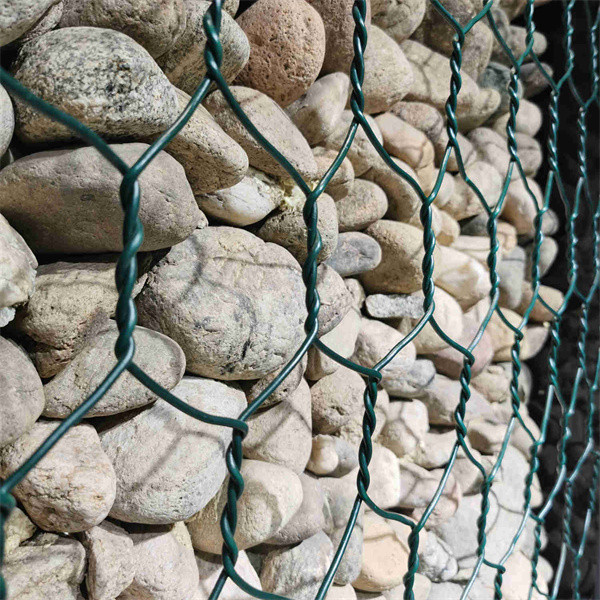nov . 04, 2024 23:25 Back to list
gabion wall pros and cons supplier
Pros and Cons of Gabion Walls A Comprehensive Guide for Suppliers
Gabion walls, made from wire mesh containers filled with rock, concrete, or other materials, are increasingly popular in landscaping and construction projects. They offer a unique blend of functionality, beauty, and ecological benefits. However, like any construction method, they come with their own set of advantages and disadvantages. This article aims to provide a comprehensive overview of the pros and cons of gabion walls, especially for suppliers looking to enter or expand in this market.
Pros of Gabion Walls
1. Cost-Effectiveness Gabion walls can be more affordable than traditional retaining walls. The materials used for filling—such as local stones—often incur lower transportation costs. Moreover, they can be installed without heavy machinery, reducing labor costs significantly.
2. Environmental Benefits Gabion walls are an eco-friendly option. They promote natural drainage, allowing water to pass through rather than pooling behind the wall. This permeability reduces the risk of erosion and flooding, making them an excellent choice for sustainable construction.
3. Durability and Longevity When constructed correctly, gabion walls can last for decades. They are resistant to harsh weather conditions, and their robust design provides impressive stability, particularly in areas prone to erosion.
4. Aesthetic Appeal Gabion walls can be visually appealing, offering a rustic yet contemporary look. Suppliers can offer various stone types and sizes, allowing for custom designs that can blend seamlessly into natural landscapes or urban settings.
5. Flexibility in Design Gabion walls can be manufactured in various shapes, sizes, and configurations, making them suitable for numerous applications—from retaining walls and garden borders to noise barriers and decorative features.
6. Easy Installation Gabion walls are relatively simple to install. They can be assembled quickly, often without the need for skilled labor. This can be a crucial selling point for suppliers looking to attract DIY enthusiasts and small contractors.
gabion wall pros and cons supplier

Cons of Gabion Walls
1. Settling Issues While gabion walls are sturdy, they can settle over time, especially if the fill material is not compacted properly. This could lead to structural problems, necessitating repairs or reinforcement.
2. Weed Growth The spaces between the stones in gabion walls can promote weed growth. This may require ongoing maintenance to keep the wall looking clean and tidy, which may be seen as a drawback for some homeowners.
3. Fixation and Movement If not anchored properly, gabion walls can shift or lean, particularly under heavy loads or during extreme weather events. Suppliers need to educate clients about proper installation techniques to mitigate this risk.
4. Limited Privacy While gabion walls can have an appealing aesthetic, they may not provide the level of privacy that wooden or solid walls offer. This is an important consideration for residential properties where privacy is a priority.
5. Initial Appearance Freshly constructed gabion walls may not have the same polished look as other types of walls. Over time, as vegetation grows and stones age, they can become more integrated into their environment, but the initial appearance may be a deterrent for some.
6. Local Material Availability The effectiveness and cost-efficiency of gabion walls heavily rely on the availability of suitable fill materials. Suppliers should ensure a ready supply of appropriately sized rocks and stones to meet client needs.
Conclusion
Gabion walls present a compelling option for a wide range of applications, offering notable benefits in terms of cost, durability, and environmental sustainability. However, suppliers should also carefully consider the potential downsides, ensuring that clients are informed about possible issues and maintenance needs. By providing thorough education about gabion walls, suppliers can help clients make informed decisions and maximize the benefits of this unique building material. Whether for a residential garden or a commercial development, gabion walls can be a valuable addition to any landscape.
-
The Role of Galvanized Gabion Mesh in Riverbank Protection
NewsJun.26,2025
-
The Role of Gabion Basket Raised Bed in Sustainable Gardening
NewsJun.26,2025
-
Quality Assurance of Wire Mesh Gabion Baskets
NewsJun.26,2025
-
Installation Guide for Welded Gabion Box
NewsJun.26,2025
-
How to Choose the Right Gabion Box
NewsJun.26,2025
-
Different Types of Gabion Wire Mesh
NewsJun.26,2025
-
Why PVC Coated Gabion Mattress Is the Best Solution for Long-Term Erosion Control
NewsMay.23,2025






